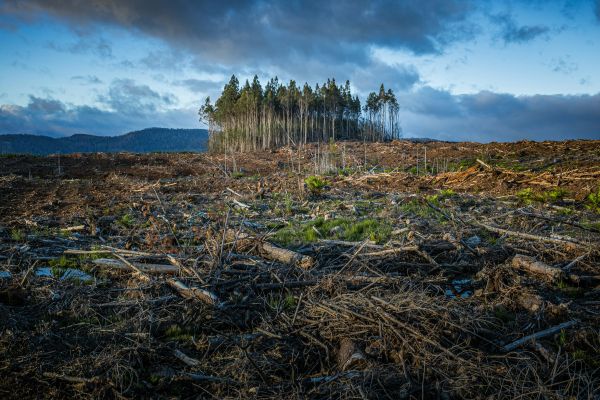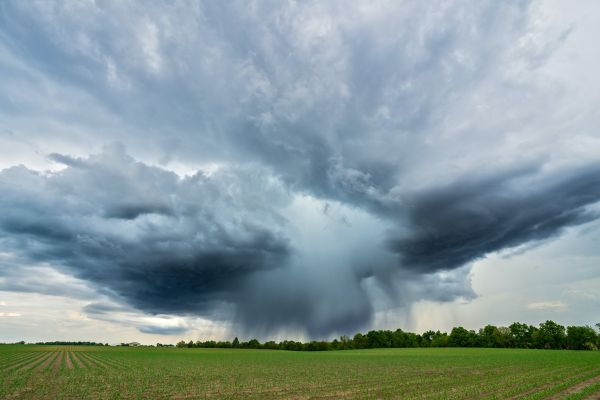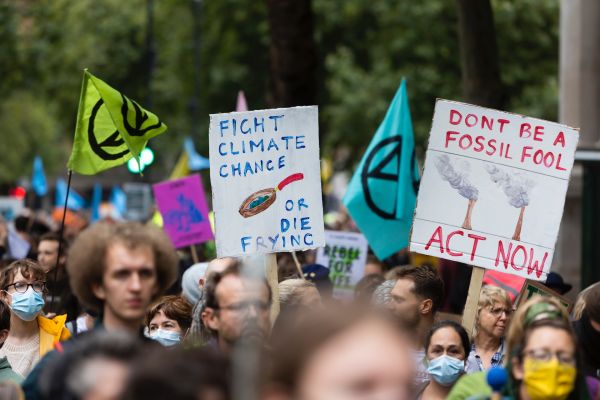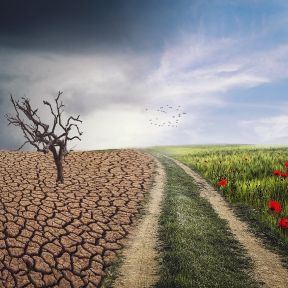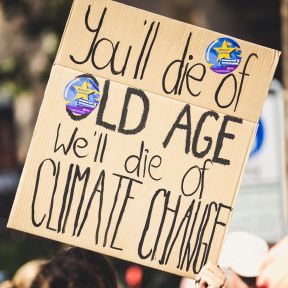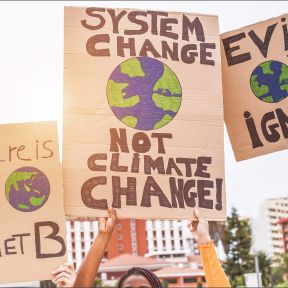
Climate Anxiety
Some individuals—especially adolescents and young adults—struggle with what has been dubbed “climate anxiety”: ongoing feelings of fear, guilt, and grief related to environmental changes caused by climate change. For many, “eco-anxiety” can feel overwhelming because the problem of climate change is large, complex, and unlikely to be solved with individual actions alone. Some report feeling despair at the perceived unwillingness of governments or society as a whole to take meaningful action to stop climate catastrophe. Still, there are things individuals can do to better manage their anxiety.

For many individuals who are convinced that the climate is changing for the worse, concerns about widespread denial, misinformation, and apparent apathy in the face of impending disaster breed a state of distress. Some articulate that the future seems bleak and hopeless, and have even stated that they are not willing to have children in a rapidly warming world. The term "climate anxiety," though it has been defined in a few different ways, broadly aims to capture these sentiments. It was first coined in the early 2000s but has gained prominence in more recent years.
Climate anxiety can manifest in various ways. Some people report symptoms—such as irritability, poor concentration, or insomnia—that are similar to those of generalized anxiety but are experienced specifically when they think about the impending climate crisis. Others may report symptoms that may seem more closely related to depression; these include feelings of hopelessness, powerlessness, guilt, and despair.
It’s not known exactly how many people are dealing with climate anxiety. One 2022 survey found that 32 percent of American adults said they were “anxious” about climate change. However, studies focusing on young people tend to indicate significantly higher levels of concern. One survey found that a majority of teens and young adults reported feeling anxious, angry, or helpless about climate change; almost half said that their negative feelings about climate change interfered with their daily functioning.
Surveys suggest that climate anxiety is most prevalent among teens and young adults; in one international survey published in 2021, 75 percent of young people between the ages of 16 and 25 said that the future of the planet felt “frightening” due to climate change. There is also some evidence that women are more likely than men to report climate anxiety, and certain racial and ethnic groups, including Indigenous peoples, may be more likely to be affected.
Climate anxiety is not in the DSM and it is not considered a mental health diagnosis. It is possible for someone who is struggling with high levels of eco-anxiety to also qualify for other mental health diagnoses, like generalized anxiety or depression, though this is not universally the case.

Addressing one's anxiety directly—whether with therapy, mindfulness, exercise, or other approaches—can help make day-to-day life more manageable for those who struggle with climate anxiety. For those who live in regions that are already being impacted by climate change, taking action can help build a sense of resilience.
Too much negative climate news can worsen eco-anxiety; thus, setting limits on your news consumption and being mindful of how it’s affecting you can help you manage your worries about climate change while allowing you to stay informed. Similarly, joining a local organization that is making a difference in your community may contribute to the sense that concrete measures can be taken. Traditional anxiety-fighting strategies—including prioritizing healthy habits and seeking therapy if needed—can also be effective tools.
Although climate anxiety is not a mental health disorder, finding a therapist can be an invaluable source of support. Approaches that focus specifically on anxiety symptoms can be useful, helping you recognize triggers, manage intrusive climate-related thoughts, and identify proactive ways to support both the planet and your mental health.
Teachers, parents, and other adults should not dismiss children’s anxieties about climate change; instead, it’s important to validate their feelings and allow them to express their fears without judgment. Pointing them toward local volunteer organizations—or volunteering as a family or classroom, if possible—can help children connect with nature and identify ways they can make a difference.
